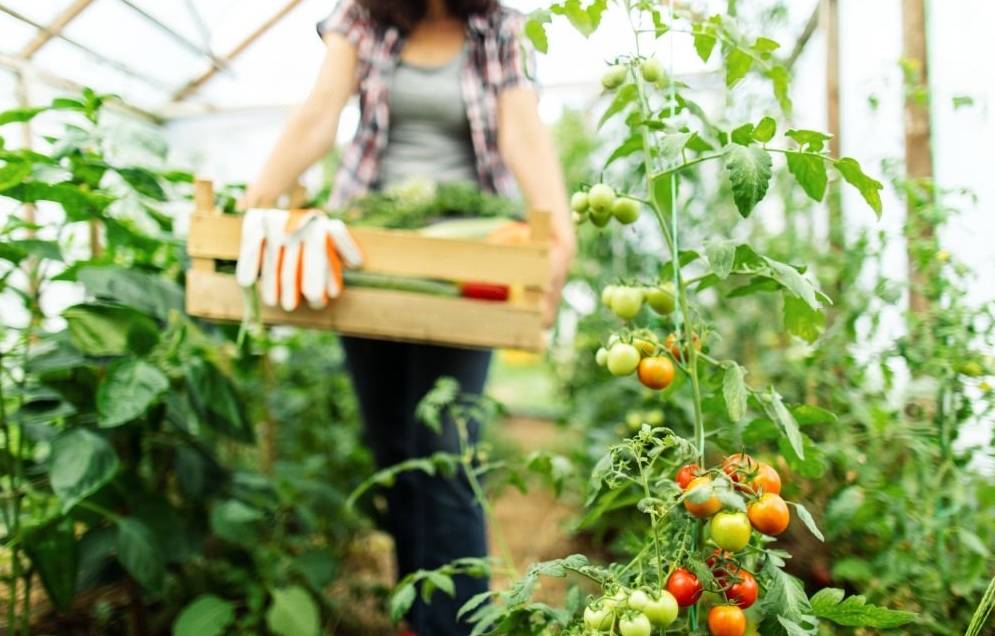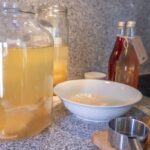Organic gardening and farming provide an excellent alternative in the hectic modern world, where convenience frequently trumps concern for one’s health. Organic methods put the wellbeing of both people and the environment ahead of other considerations, adhering to the tenets of environmental stewardship and the principles of sustainability. In this post, we will investigate the principles of organic gardening and farming, understand the benefits of doing so, and discover how to put these techniques into action in your own backyard or on your own farm.
Benefits of Organic Gardening
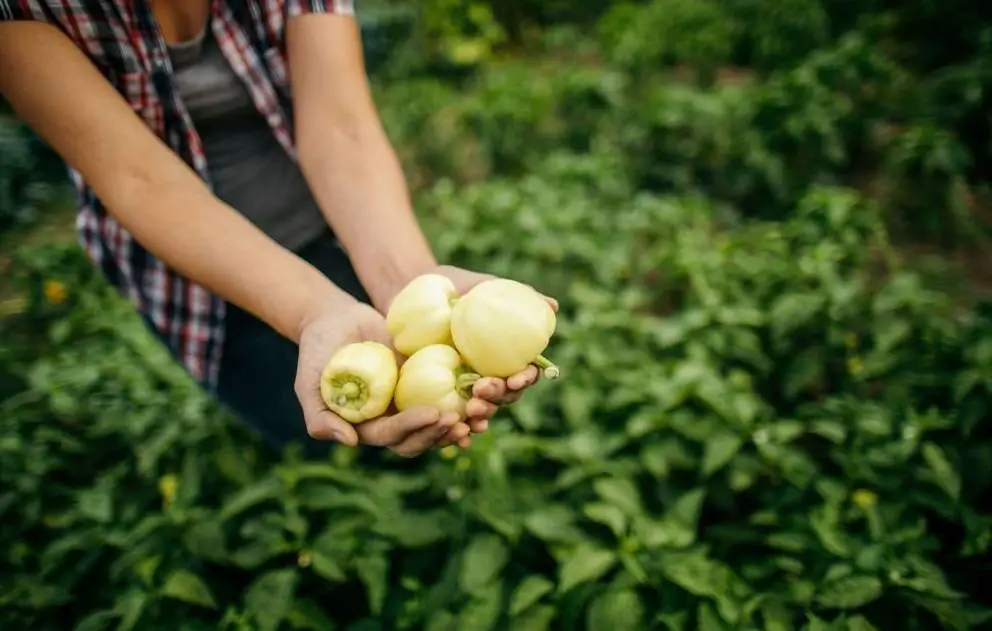
Organic gardening is more than just not using chemical fertilizers or pesticides. It’s an all-encompassing strategy that encourages biological variety, improves soil quality, and contributes to the health and happiness of people, animals, and plants as a whole. The following are some of the most important advantages of organic gardening:
- Environmental Preservation: Organic farming helps to conserve ecosystems and protect biodiversity since it eliminates the use of synthetic pesticides and fertilizers. This results in lower levels of pollution in the soil and water.
- Healthier Produce: The use of organic fruits, vegetables, and herbs not only eliminates the risk of ingesting potentially hazardous residues, but also results in a meal that is more healthful and flavorful to enjoy.
- Improved Soil Fertility: Building and maintaining healthy soil is the primary emphasis of organic farming techniques. These activities aim to enhance the soil’s structure, nutritional content, and microbial activity, which eventually results in increased plant vitality.
- Reduced Carbon Footprint: Organic gardening and farming help to the mitigation of climate change and the reduction of carbon emissions in a number of ways. These include minimizing reliance on inputs that are based on fossil fuels and boosting local production.
Basic Principles of Organic Gardening
To embark on your organic gardening journey, it’s important to understand and adhere to some fundamental principles:
Respect for Nature
The practice of organic gardening acknowledges the mutual dependency of all living things and strives to coexist peacefully with the ecosystems that already exist. It places an emphasis on the significance of protecting and fostering biodiversity while paying homage to the innate intelligence possessed by nature.
Soil Health
Organic farming relies heavily on maintaining fertile soil as its primary medium. It’s filled to the brim with beneficial microbes, earthworms, and other soil life that contribute to the cycling of nutrients, the retention of moisture, and the suppression of disease.
Ecological Pest Management
The practice of organic gardening places an emphasis on the application of ecological practices for the control and prevention of agricultural pests and illnesses. Insects that are helpful to the ecosystem should be encouraged, crop rotation should be practiced, and physical barriers or natural pesticides should be used only when required.
Responsible Resource Use
Organic farmers promote effective resource usage. Water conservation, maximizing the use of fertilizer and compost, and reducing the amount of waste produced are all necessary steps in this process.
Preparing Your Organic Garden
Before you start planting, it’s essential to prepare your organic garden properly. Follow these steps to create a healthy and thriving garden:
Site Selection and Preparation
Pick a spot for your garden that gets plenty of sunlight and has soil that drains well, if at all possible. Clear the area of any grass or weeds, and then till the ground to enhance the soil’s texture and ventilation.
Raised Beds and Containers
When planning your organic garden, raised beds or containers are good options to consider. They offer improved control over soil quality, drainage, and weed management, among other benefits. For optimum plant development, stuff them with a mixture of organic soil, compost, and well-rotted animal manure.
Crop Rotation
Crop rotation is an effective method for preventing the accumulation of pests and diseases while also preserving the fertility of the soil. It’s important to plan the layout of your garden so that the crops are planted in various beds each year. This will help prevent the spread of disease and ensure that there is a healthy balance of nutrients.
Companion Planting
Benefit from companion planting, in which certain plant combinations serve each other by deterring pests, attracting beneficial insects, or improving nutrient uptake. For instance, putting marigolds next to tomato plants can help prevent damage from nematodes.
Choosing Organic Seeds and Plants
The quality of seeds and plants you choose for your organic garden can significantly impact your success. Follow these guidelines when selecting organic seeds and plants:
Certified Organic
Try to find seeds and plants that have been given the organic certification. This verifies that they were produced without the use of any artificial chemicals and that they adhere to the criteria for organic products.
Heirloom and Open-Pollinated Varieties
Planting heritage and open-pollinated types is a good idea since they have more flavor options and are more adaptable. These seeds have the ability to be preserved and sown in subsequent years, which helps to maintain biodiversity.
Local and Adapted Varieties
Select seeds and plants that have a good chance of thriving in the soil and temperature range that you have available. It’s common for local cultivars to be more resistant to the pests and illnesses that are common in your region.
Maintaining Soil Health
Healthy soil is the cornerstone of organic gardening. Follow these practices to maintain and improve soil health:
Organic Matter and Compost
Incorporate organic materials and compost into your soil on a regular schedule. This helps enhance the structure of the soil, as well as its capability to store water and the availability of nutrients. Create nutrient-dense compost by composting food scraps from the kitchen, yard trash, and manure from livestock.
Mulching
Put a layer of organic soil, such as straw or wood chips, around your plants. Mulch has several beneficial properties, including the ability to retain moisture, prevent weed growth, reduce temperature extremes in the soil, and gradually provide organic matter as it breaks down.
Avoid Over-Tilling
Too much tilling can destroy the structure of the soil and harm the organisms that are helpful to the soil. To protect the structure of the soil and reduce the amount of erosion that occurs, it’s important to employ methods that involve either minimum or no tilling.
Natural Pest and Weed Control
Organic gardening employs natural methods for pest and weed control, reducing reliance on synthetic chemicals. Here are some effective strategies:
Beneficial Insects
Your garden will benefit from the presence of helpful insects such as ladybugs, lacewings, and bees if you plant flowers that supply nectar and pollen to these insects. Aphids, caterpillars, and other pests are some of the insects that are consumed by the insects that help manage pest populations.
Biological Controls
In order to control some pests, it may be necessary to introduce biological controls, such as nematodes or predatory insects. These creatures seek out and destroy harmful insects while leaving helpful insects alone, so maintaining ecological harmony.
Handpicking and Physical Barriers
Perform routine checks on your plants and remove any pests by hand, paying special attention to bigger insects such as caterpillars and slugs. When protecting plants from birds, rabbits, or bigger pests, it’s best to employ the use of physical barriers such as netting or row covers.
Composting for Organic Gardening
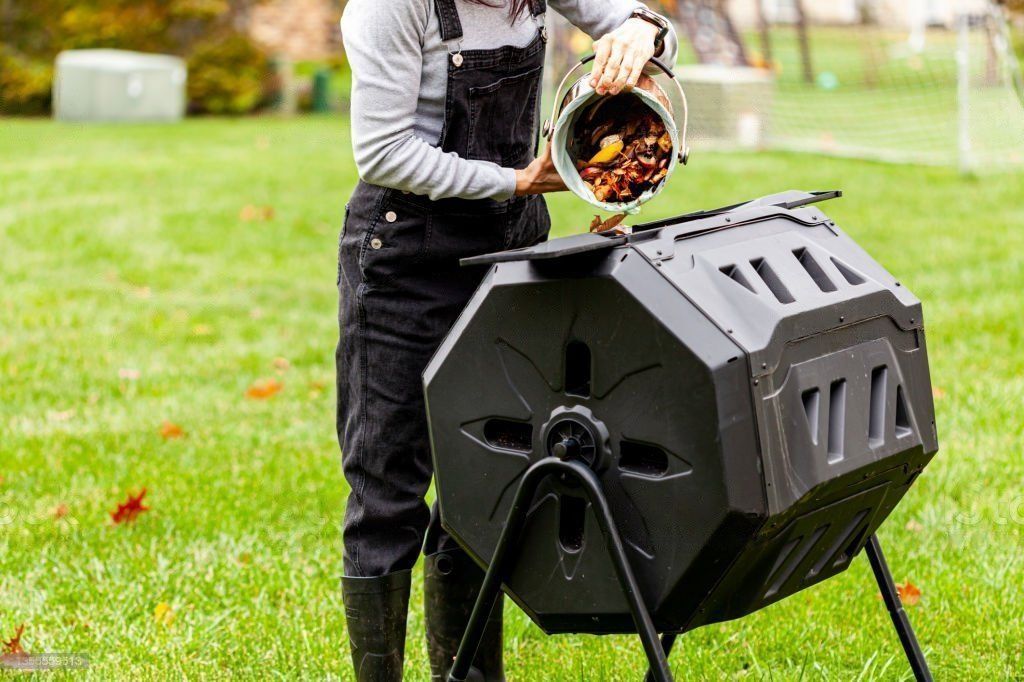
Composting is a valuable practice in organic gardening that helps reduce waste and enriches the soil. Follow these steps to create nutrient-rich compost:
Compost Ingredients
Utilize both brown and green materials in your composting endeavors to get optimal nutrient retention. elements that are considered brown include dried leaves, straw, and wood chips, whereas elements that are considered green include kitchen trash, grass clippings, and plant trimmings. In order to keep a compost pile in good health, you should avoid adding any things that contain meat, dairy, or oil.
Composting Process
In your compost bin or pile, layer the brown items on top of the green materials, and be sure to add water to keep the mixture wet. Aerating and accelerating the process of decomposition in compost requires regular turning of the pile. Your garden beds will benefit from increased fertility if you add crumbly, black compost to them after the organic components have had sufficient time to decompose and turn into compost.
Watering and Irrigation
Proper watering is essential for the health and productivity of your organic garden. Follow these guidelines for efficient watering:
Watering Techniques
To get roots to grow deep, water them less often but more deeply. If you water your plants shallowly and often, the roots will grow shallow and be more likely to die in a drought. Use drip irrigation or soaker lines to get water right to the roots of the plants and waste as little water as possible.
Mulch for Water Conservation
For better soil moisture retention, surround your plants with a layer of organic mulch. Mulch helps stop water from evaporating, keeps the soil warm, and stops weeds from growing. Make sure the mulch is pulled away from the plant roots to stop diseases caused by too much wetness.
Organic Fertilizers
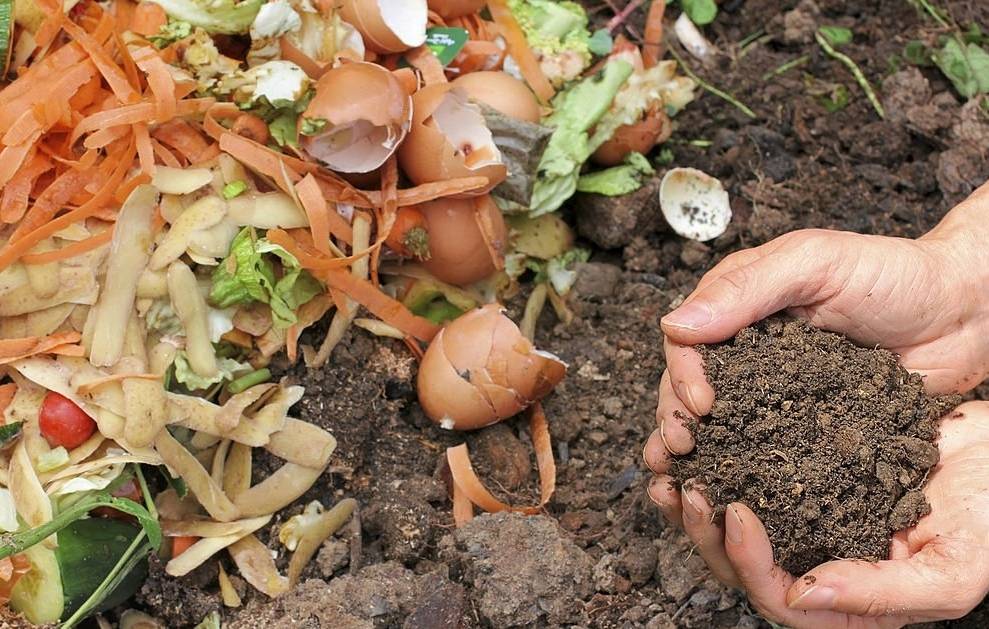
Organic fertilizers provide essential nutrients to your plants while improving soil fertility. Consider these options for organic fertilization:
Compost and Worm Castings
You can add nutrients to your soil slowly by adding fertilizer or worm castings. These organic materials improve the structure of the soil and the activity of microorganisms, which helps plants grow well.
Organic Amendments
In order to supplement certain nutrients based on your soil test findings, you can use organic amendments such as bone meal, fish emulsion, or kelp meal. These natural fertilizers have the right amount of nutrients for plants to be healthy.
Cover Crops
Plant beans or grains as cover crops during times when the land isn’t being used to add nutrients to the soil. When these plants are tilled into the soil, they fix nitrogen from the air and add organic matter.
Harvesting and Storing Organic Produce
The joy of organic gardening culminates in the harvest of your bountiful produce. Follow these guidelines for harvesting and storing organic fruits, vegetables, and herbs:
Harvesting Time
The highest flavor and nutritional value come from crops that are picked at their height of maturity. Different plants have different signs, like color, structure, or size, that show when they are ready to be picked.
Proper Handling
Carefully handle gathered food to keep it from getting bruised or damaged. Use clean containers and gentle handling to keep the quality of your newly gathered crops.
Storage Conditions
To keep fruits and vegetables fresh longer, store them in cool, dark, and well-ventilated places. Some crops need to be kept in certain ways, like in the fridge or by hanging them in a dry place. Follow the rules for each crop to make sure it stays as fresh as possible.
Organic Farming Techniques
In addition to organic gardening, organic farming on a larger scale follows similar principles with some additional considerations. Here are some techniques used in organic farming:
Crop Rotation and Diversity
Use crop rotation to break the cycles of pests and diseases, improve soil richness, and stop nutrients from being used up. Diversify your crops to get rid of pests better and help good bugs thrive.
Soil Conservation Practices
Natural farming practices prioritize protecting the soil from erosion and keeping it in good condition for future crops. This includes things like contour cutting, terracing, and planting cover crops to keep the soil from washing away and nutrients from running off.
Integrated Pest Management (IPM)
To get rid of pests successfully, organic farmers use integrated pest control. This method uses different ways to get rid of pests, like biological controls, cultural practices, and plant poisons, so that synthetic chemicals are used as little as possible.
Organic Livestock Management
In organic gardening, animals are often part of the system, and their waste is often used as a source of nutrients for crops. The goal of organic livestock management is to give animals access to pasture, natural food, and kind care.
Common Challenges and Solutions
While organic gardening and farming offer numerous benefits, they also come with their share of challenges. Here are some common challenges and possible solutions:

Pest and Disease Management
Pests and diseases can be a problem for organic farmers and gardens. Using the right cultural techniques, rotating crops, and attracting helpful insects can help deal with these problems.
Weed Control
Weeds can threaten crop yields when they compete for water and nutrients. Weeds can be kept under control in an organic yard or farm by pulling them out regularly, putting down mulch, and using hand or machine tools like hand-pulling or hoeing.
Nutrient Management
It’s very important to keep the right mix of nutrients in the soil. Having the soil tested regularly and adding organic fertilizers or waste based on the results can help make sure that plants have enough nutrients to grow.
The Future of Organic Gardening and Farming
As people become more aware of how important it’s to eat food that is healthy and good for the environment, the future of organic growing and farming looks bright. The number of people who want organically grown food keeps going up, which has led to improvements in organic farming, study, and technology. With new ideas and easier access, organic gardening and farming are likely to play a big role in making the food system more sustainable and good for the environment.
Conclusion
Organic gardening and farming are ways to get back in touch with nature, take better care of the earth, and enjoy healthy, tasty food. By following the rules of organic farming, like being kind to nature, keeping the earth healthy, and using natural ways to get rid of pests, you can make a garden or farm that does well. Embrace the beauty of organic methods and help make the world healthy while you enjoy the results of your work.
FAQs (Frequently Asked Questions)
- Is organic gardening more challenging than conventional gardening?
Organic gardening requires a different approach and mindset, but with proper knowledge and techniques, it can be just as rewarding as conventional gardening.
- Do I need a large space to practice organic gardening?
Organic gardening can be practiced in various spaces, including small urban gardens, balconies, or even containers. Adapt your gardening methods to your available space.
- Are organic gardening and farming more expensive than conventional methods?
While organic inputs may be costlier initially, organic gardening and farming can save money in the long run by reducing the need for synthetic chemicals and promoting sustainable practices.
- Can I transition my existing garden or farm to organic practices?
Yes, transitioning to organic practices is possible. Start by improving soil health, eliminating synthetic inputs, and gradually implementing organic methods.
- Is organic produce truly healthier and more nutritious?
Organic produce has been found to contain higher levels of certain nutrients and lower levels of pesticide residues compared to conventionally grown produce, making it a healthier choice.

As a dedicated mother and passionate software developer, she weaves her diverse experiences into captivating stories that inspire and engage readers. Emma's love for sustainable living and environmental consciousness permeates both her personal and professional life. When she's not immersed in the world of coding and software development, Emma can be found nurturing her family and tending to her thriving organic garden. Her commitment to sustainable practices extends to every aspect of her life, from repurposing household items to embracing eco-friendly technologies.

